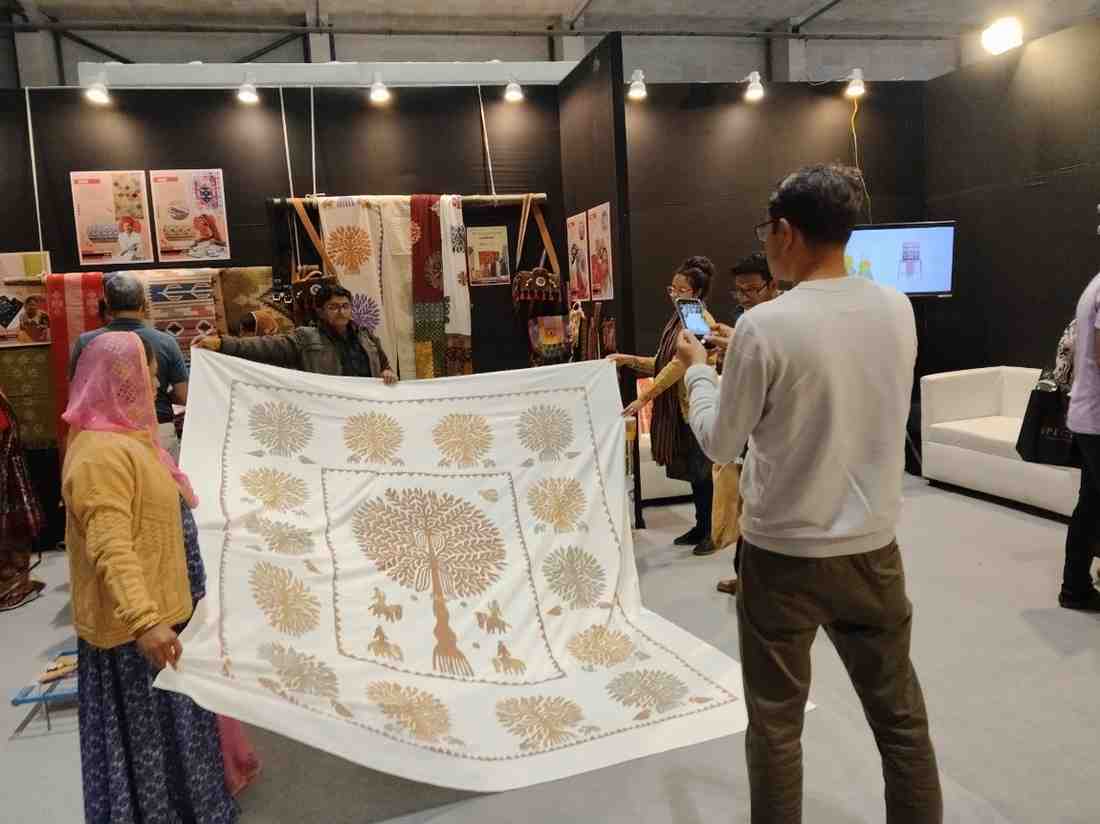Overview
The "Hunar" initiative, aimed to uplift women appliqué artists from five villages in Barmer district’s Dhanau tehsil, Rajasthan. Focused on enhancing traditional skills, fostering innovation, and building direct market linkages, the project empowered 220 women artists from five villages namely, Dhanau, Alamsar, Sawa, Itada, and Burhan ka Tala.
The project built on the region’s rich legacy of appliqué and embroidery. Through a structured series of capacity-building phases—starting with a Training of Trainers (ToT) programme followed by roll-out training, advanced product development, and digital-business skills sessions—the intervention aimed at both skill enhancement and cultural preservation.
The ToT module trained 25 master artists in advanced design and garment techniques, who later led trainings for the remaining cohort of 178 women. These sessions significantly improved the artists’ abilities in design innovation, pattern cutting, stitching, and finishing, while encouraging creative independence and breaking gender norms.
Specialized trainings under the project focused on seamlessly blending traditional embroidery and appliqué techniques with contemporary product lines such as kurtis, kaftans, jackets, bags, and home décor items. To complement these creative skills, a dedicated Business and Digital Skills module equipped artists with essential knowledge in branding, costing, and online marketing, significantly enhancing their entrepreneurial capabilities. In parallel, efforts were made to facilitate formal recognition and institutional support for the artists—resulting in 95 women successfully obtaining Artisan Cards from the Development Commissioner (Handicrafts) office, thereby enabling access to a range of government welfare schemes and opportunities.
Exposure through national events such as Maru Udan, Lokotsav, ABID Expo, Sur Jahan and Vhah Festival enabled artists to showcase their work to diverse audiences, and generate direct sales and new market leads. Women who previously worked under middlemen found new confidence in representing their craft independently.
The impact of Hunar has been transformative—reviving traditional techniques, enhancing technical skillsets, promoting cultural continuity, and fostering gender-inclusive economic development. Importantly, the project has laid the foundation for sustainable livelihoods and established a replicable model of traditional craft-based community empowerment.
Highlights
Comprehensive Skill Development - A total of 220 women from five villages—Dhanau, Alamsar, Sawa, Itada and Burhan ka Tala —were trained through a structured program that included a Training of Trainers (ToT), roll-out training, and an advanced product development workshop. The initiative focused on appliqué, embroidery, garment construction, finishing, and design innovation.
Revival and Innovation in Traditional Crafts - The project revitalized traditional techniques in appliqué and embroidery such as Mukka, Jogi, Soop, Khambariya, Tagai, and mirror work, blending them with modern aesthetics. These were incorporated into a diverse product range including kurtis, kaftans, jackets, stoles, bags, cushion covers, and table linen sets.
Women-Led Knowledge Sharing - Women trained during the ToT phase became peer-trainers in the subsequent roll-out sessions, creating a locally rooted ecosystem of skill-sharing, leadership, and community-driven learning.
Design Diversification and Technical Advancement - Participants gained hands-on exposure to garment-making, motif creation, pattern development, cutwork techniques, and fabric exploration. This enabled them to create refined, market-ready products with improved finishing and aesthetic value.
Digital and Entrepreneurial Literacy - Through the Business and Digital Skills module, participants received training in branding, costing, business communication, and social media promotion.
Empowerment, Mobility, and Market Access - The initiative empowered women artists to connect directly with markets by participating in national platforms such as Maru Udan, ABID Expo, Lokotsav Goa, Sur Jahan, and VHAH Festival. These experiences allowed them to break social barriers, confidently engage with audiences, and represent their craft as agential creative producers, leading to greater recognition and self-assurance.
Formal Recognition and Access to Schemes - As a step toward institutional empowerment, 95 women artists successfully obtained Artisan Cards from the Office of the Development Commissioner (Handicrafts), opening doors to government schemes and support networks.
Sustaining Cultural Legacy Through Innovation - By integrating traditional embroidery with contemporary design, the project not only preserved Barmer’s rich intangible cultural heritage but also sparked renewed interest among younger generations. The foundation has been laid for continued practice, innovation, and growth in the craft sector across the participating villages.

Direct beneficiaries
220
Project location
Dhanau, Alamsar, Sawa, Itada, and Burhan ka Tala in Dhanau tehsil of Barmer
State
Rajasthan
Project start year
November 2024
Project end year
March 2025Process
Testimonials
- "Applique was always my craft, but Project Hunar made it my voice. It taught me that a simple stitch can weave not just fabric, but also confidence, opportunity, and a future beyond tradition." – Indira Devi
- "All my life, I was told what I couldn't do. Project Hunar showed me what I could. Now, I don’t just stitch fabric—I stitch confidence, independence, and change." – Jatna Devi
- “Project Hunar was not just a training initiative; it was a movement that sewed courage into the fabric of tradition, stitching together hope and opportunity in the arid landscape of Rajasthan.” – Savita Devi
- “We are pleased with the opportunity that Project Hunar provided in empowering the appliqué artists of Barmer to become self-reliant through skill enhancement, cultural preservation, and direct market linkages.” — Sneha Bhattacharyya, Project Manager, Contact Base
- “The trainings helped women enhance their skills and expand their product repertoire, while also building the confidence to present their craft to wider audiences. Project Hunar transformed them from passive producers into agential creators.” — Arpan Thakur Chakraborty, Project Manager, Contact Base
Gallery
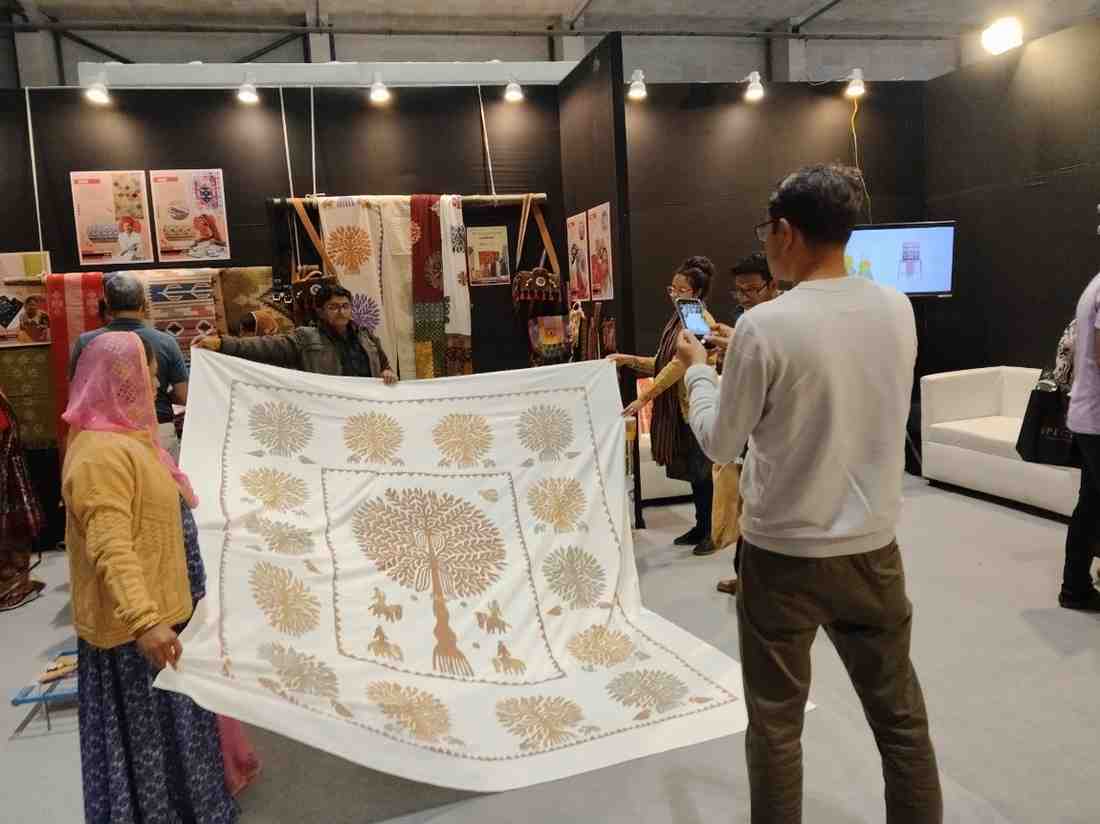
1
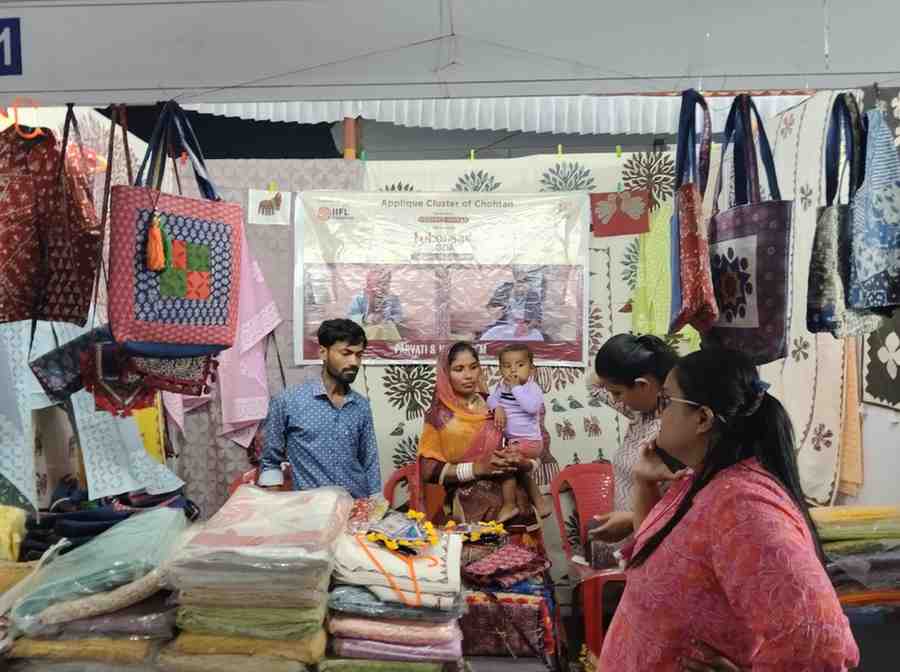
2
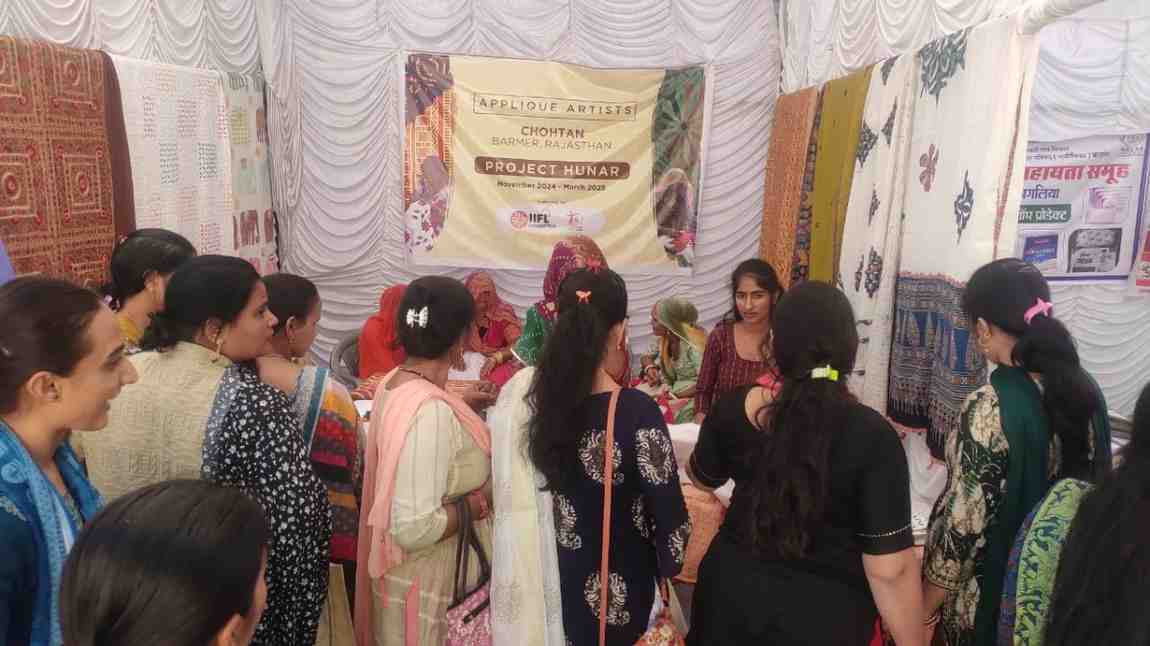
3
4
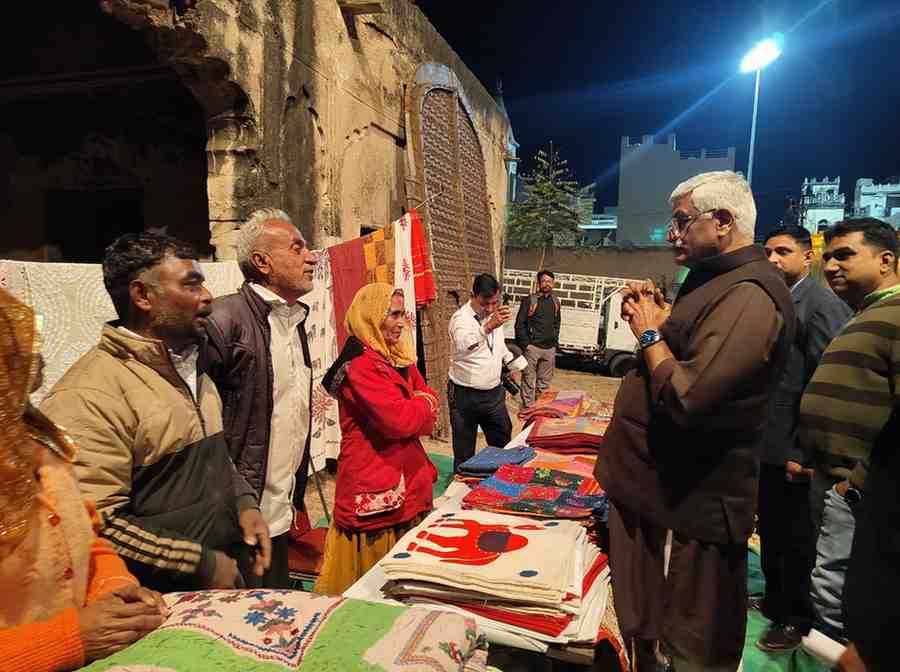
5
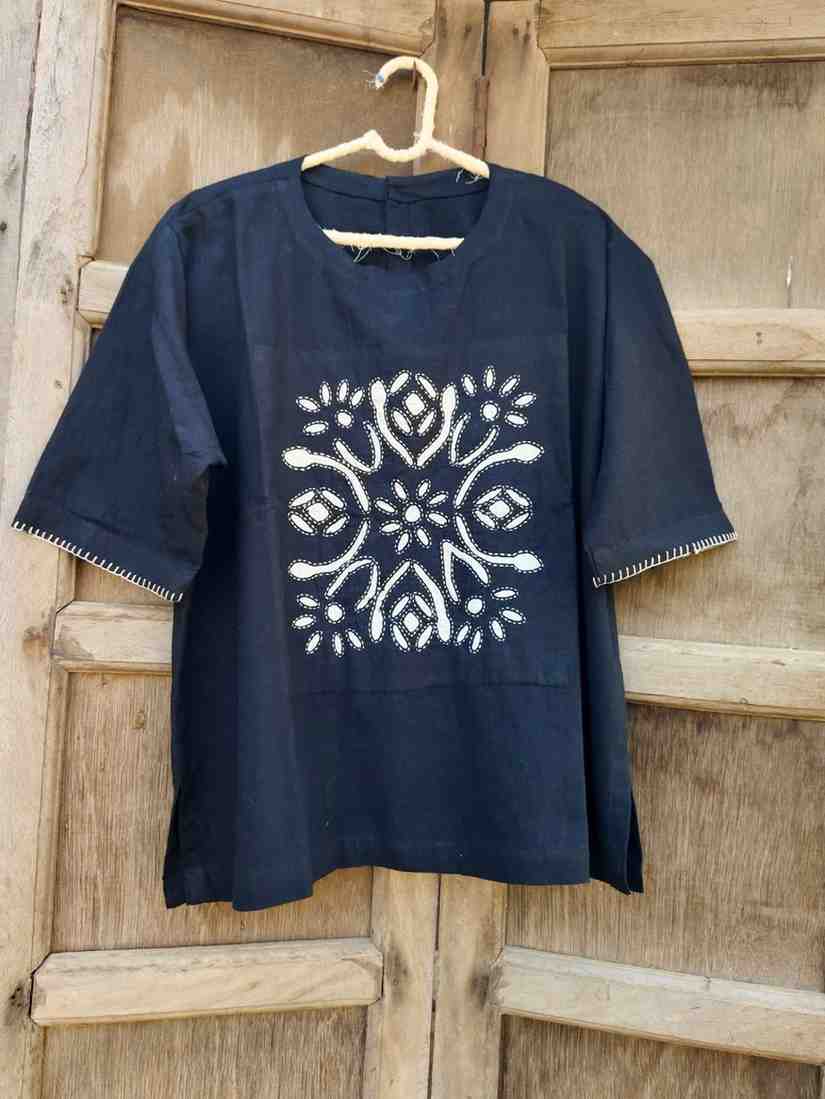
6
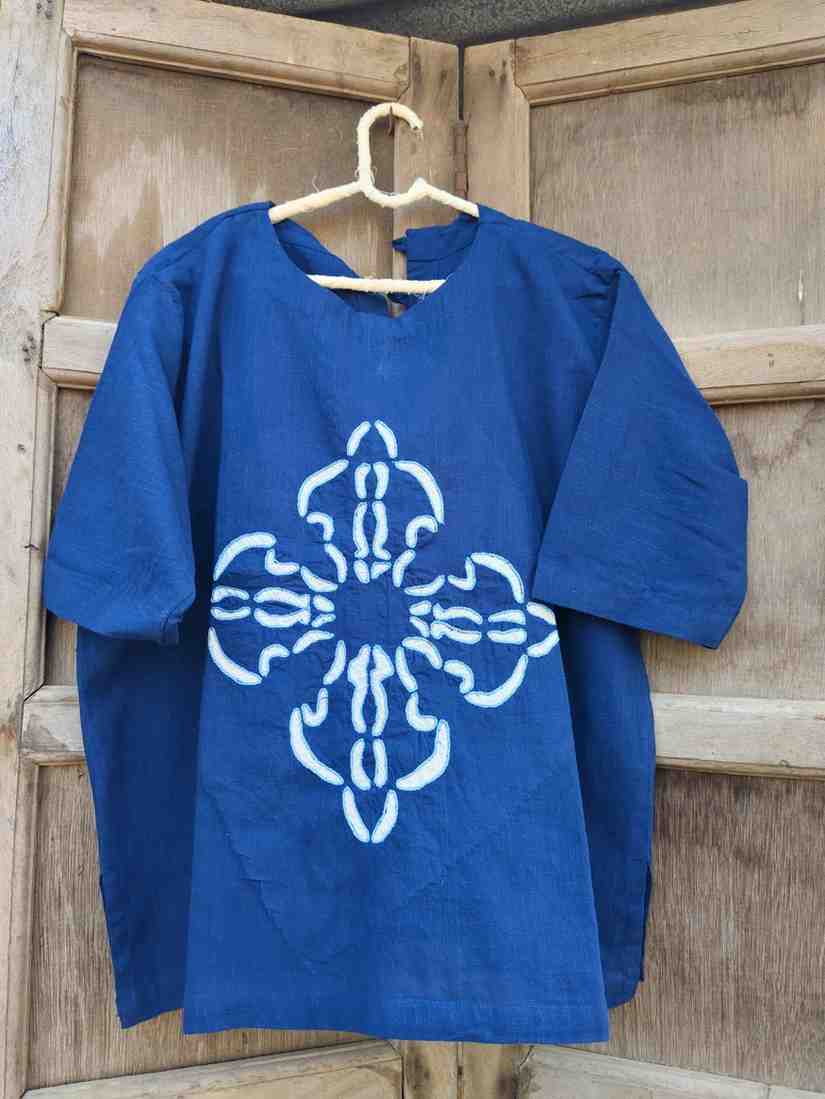
7
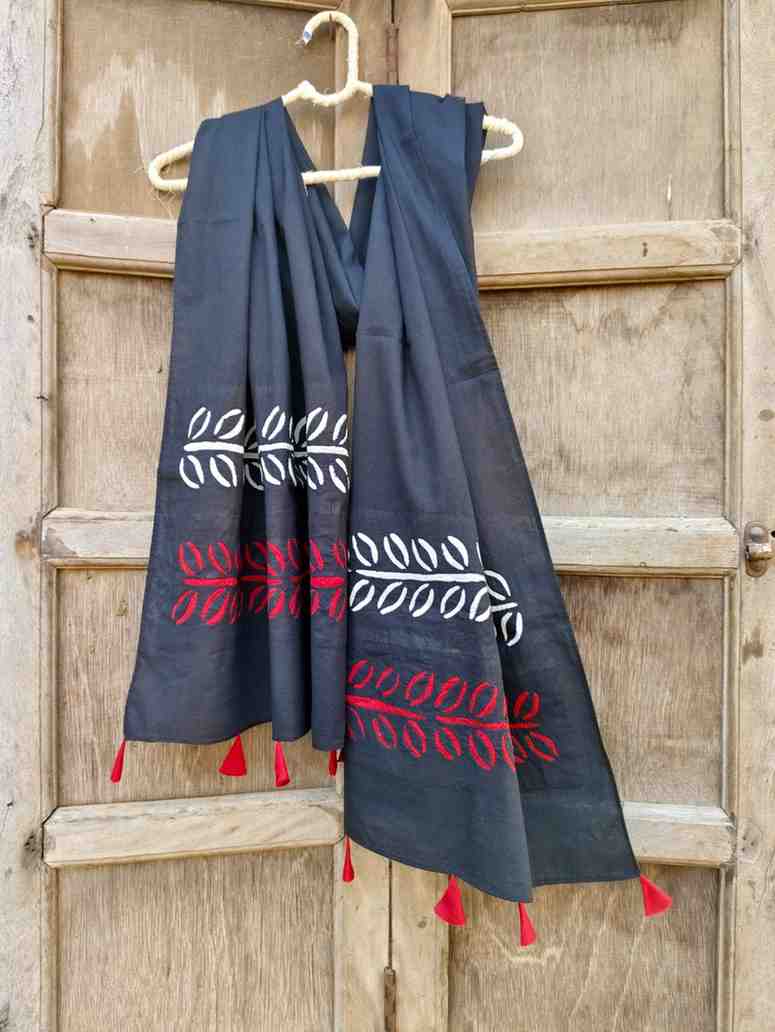
8
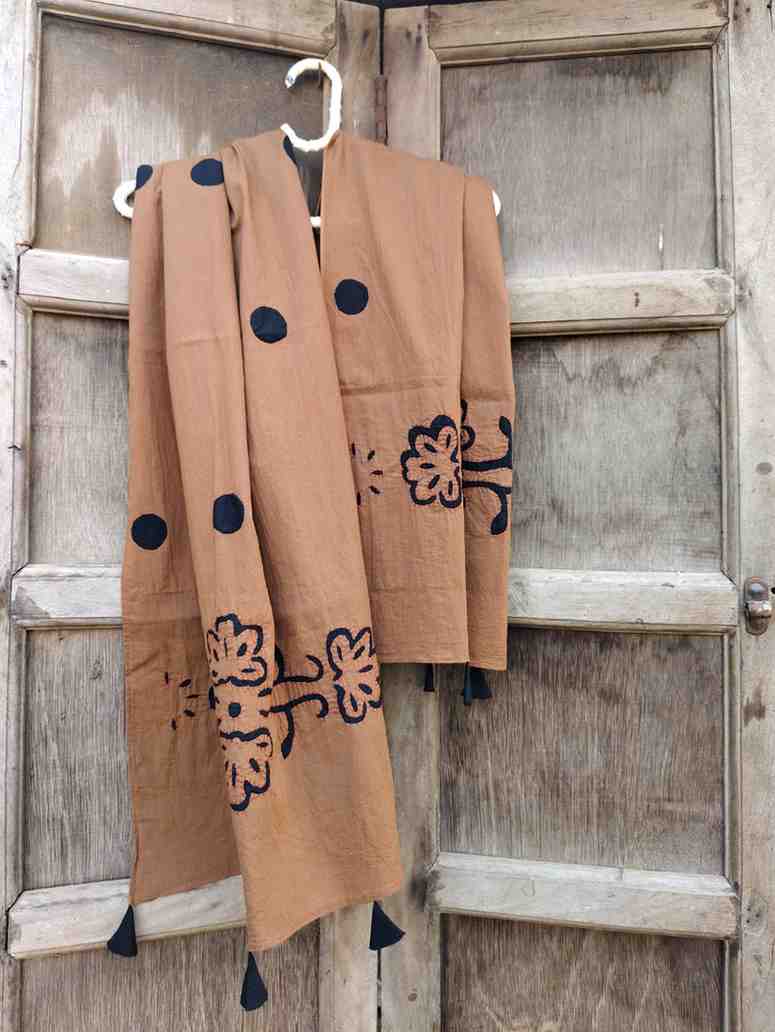
9
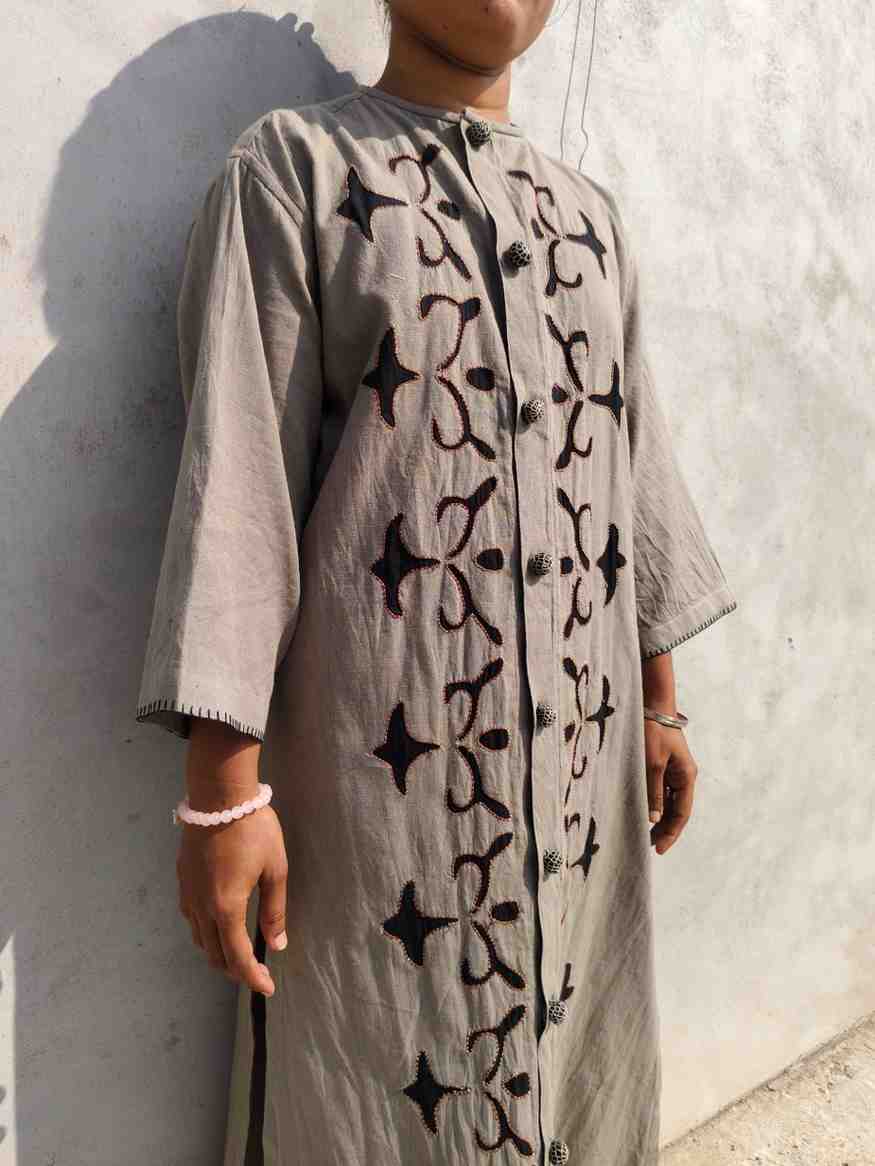
10
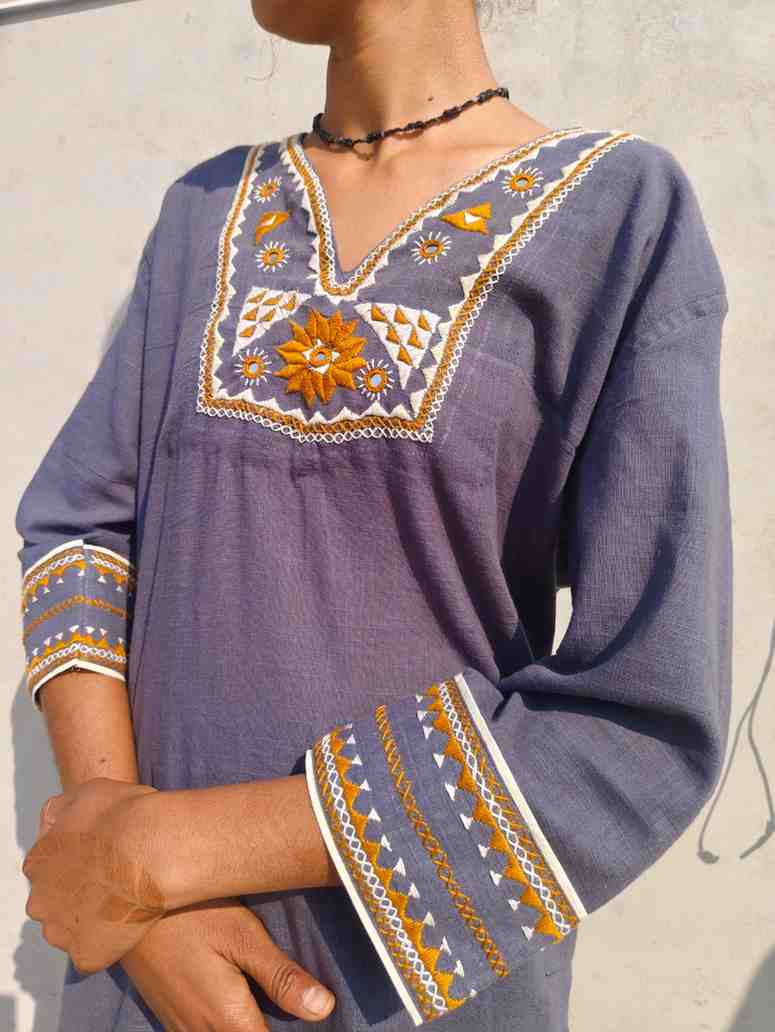
11
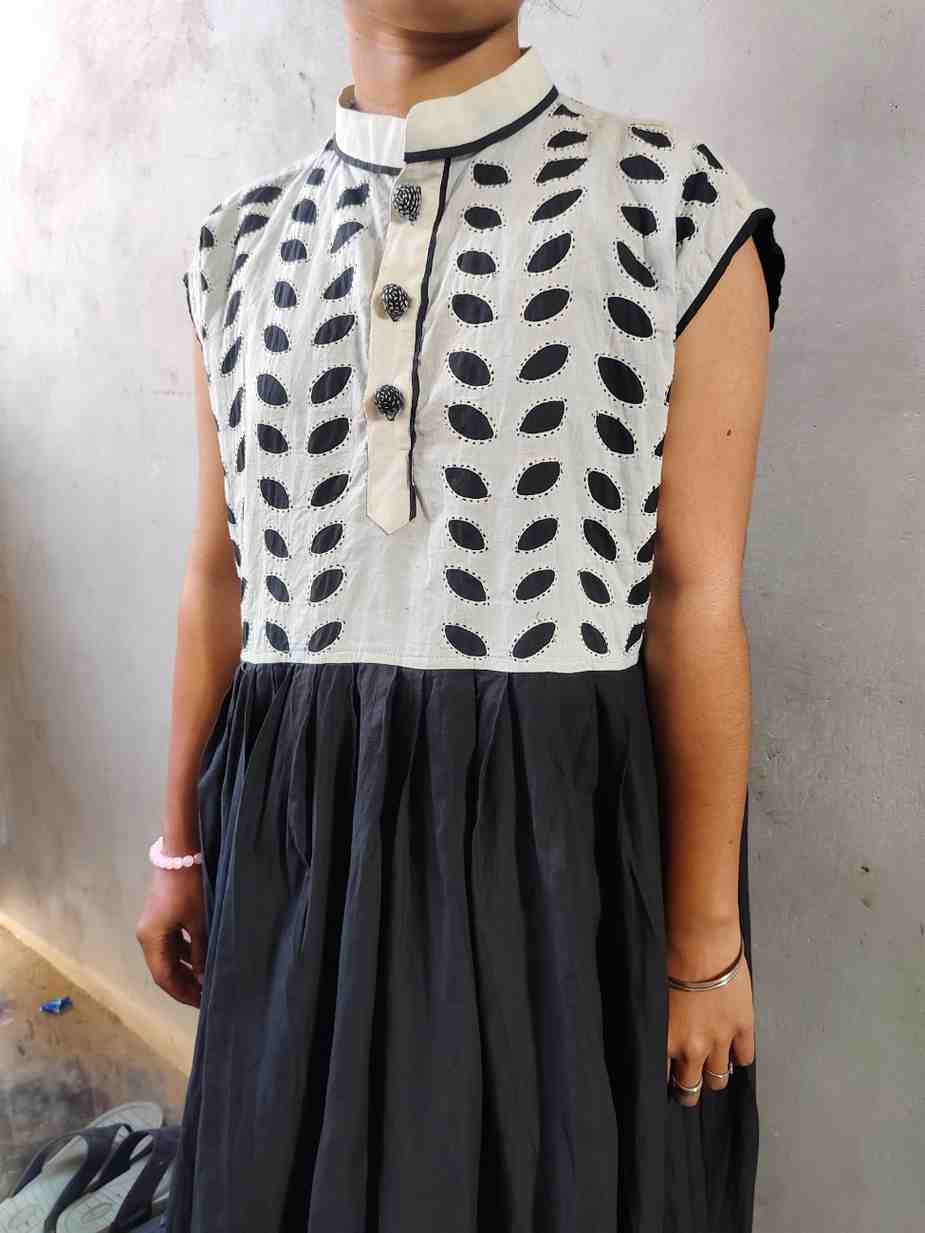
12
13
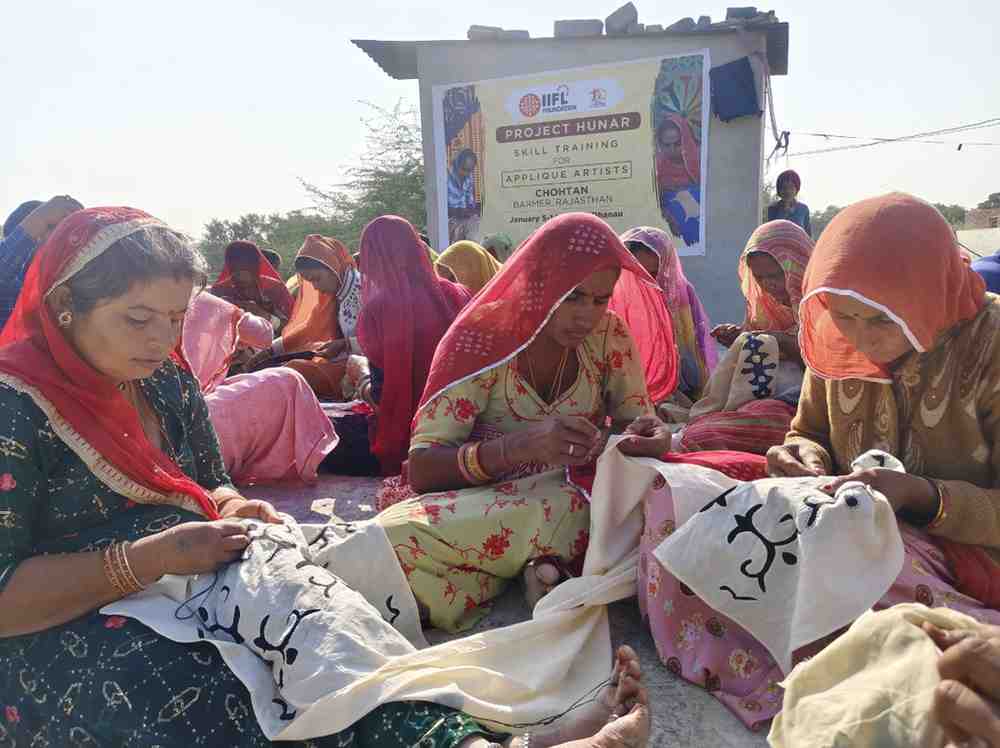
14
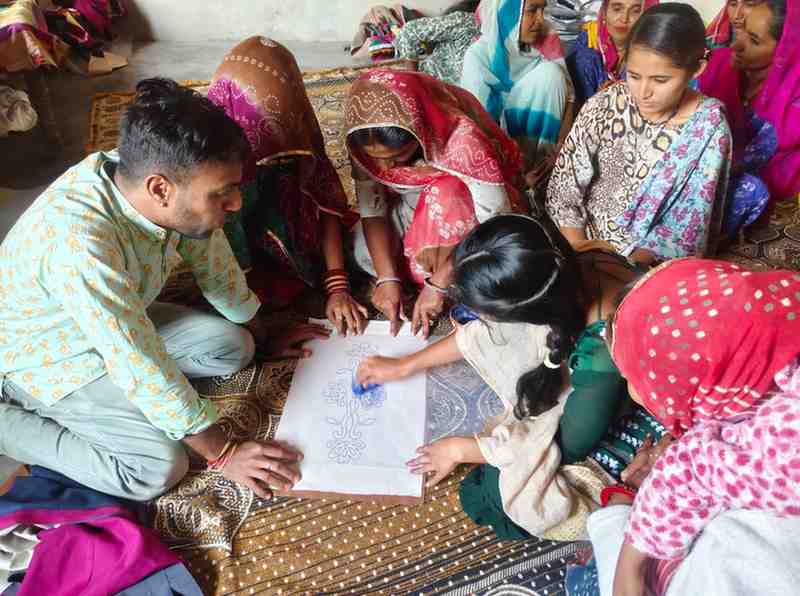
15
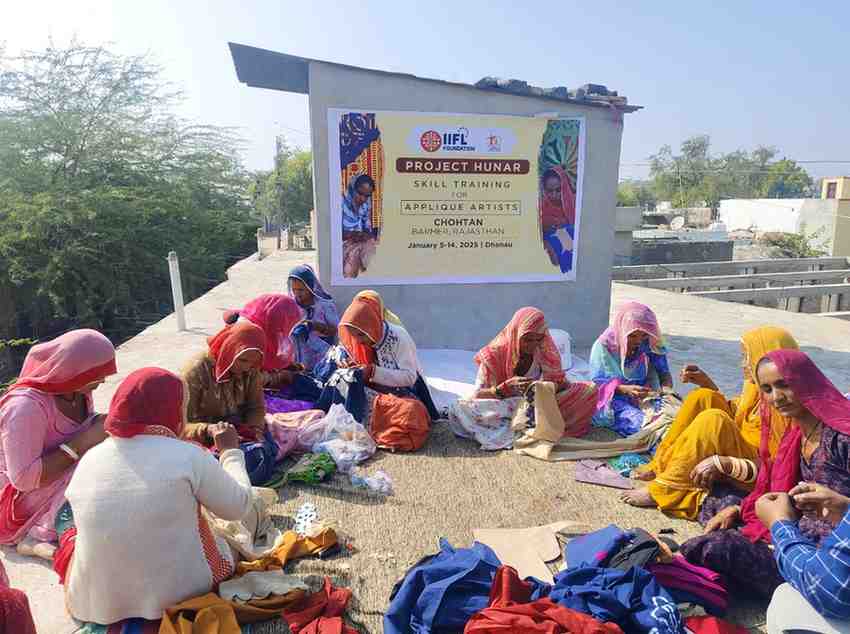
16
No Data Found
Case Studies
Disclaimer: Data period April 2024 to March 2025.

